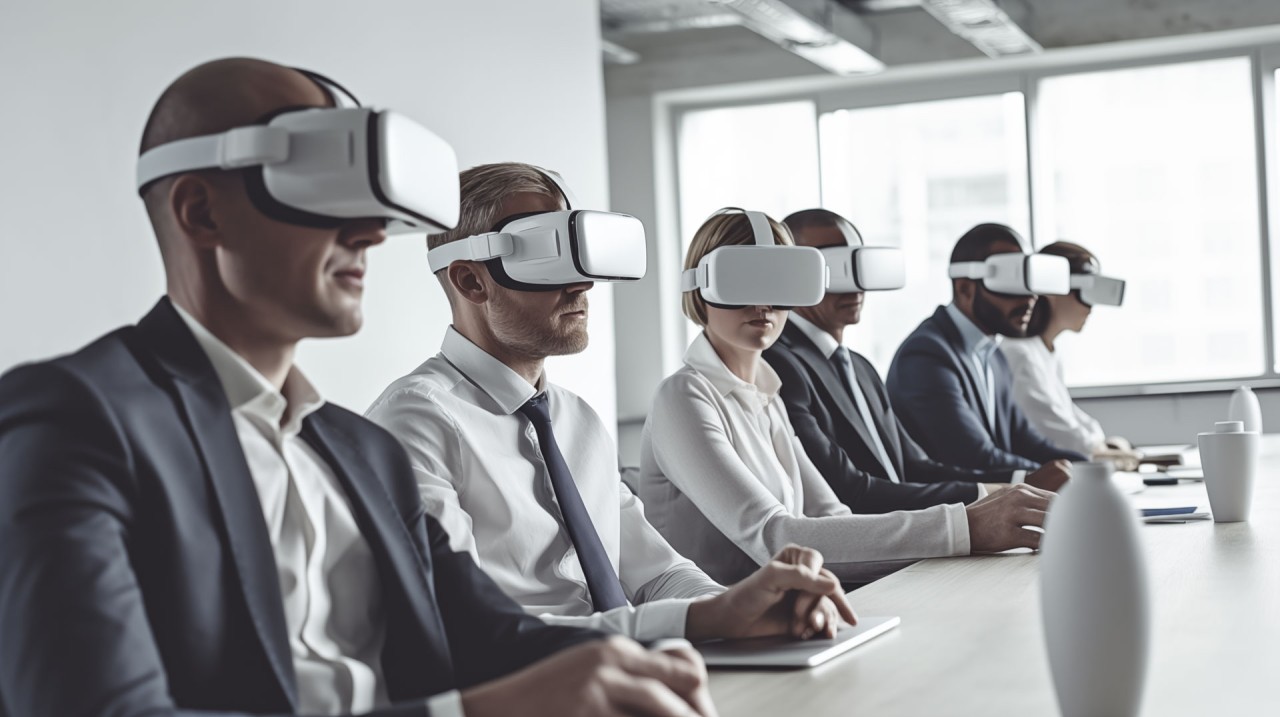May 21, 2024
Introduction
Virtual Reality (VR) is revolutionizing corporate training by offering innovative solutions that address the evolving needs of modern workforces. By simulating real-world environments and scenarios, VR enables employees to develop and refine their skills in a controlled, interactive, and engaging setting. This article explores practical use cases for VR in corporate training, focusing on scenarios that require motor skills, enhance accessibility, and need minimal supervision.
High-Stakes and Safety Training
VR is particularly effective for high-stakes training where safety is paramount. By simulating dangerous scenarios, employees can practice emergency procedures or handle hazardous materials without the associated risks. For example, VR can prepare workers for emergencies on an oil rig or train them to handle chemicals safely in a plant. This not only reduces risks but also cuts costs and minimizes disruptions compared to traditional training methods. Employees can familiarize themselves with safety protocols and environments from the comfort of their homes before entering potentially hazardous workplaces.
Manufacturing and Industrial Training
In the manufacturing sector, VR is transforming how technical staff learn complex tasks such as equipment operation, machinery maintenance, and product assembly. These simulations replicate the exact conditions workers will encounter on the factory floor, allowing them to practice and perfect their motor skills without downtime or material waste. Repeatedly performing tasks in a virtual environment ensures that employees are well-prepared for real-world applications.
Healthcare and Surgical Training
The healthcare industry significantly benefits from VR, especially in surgical education. Surgeons can practice procedures in a lifelike VR setting, eliminating risks to patients and allowing for repetition and skill refinement. This method is crucial for high-risk operations requiring precision. VR training platforms can scale to accommodate large numbers of trainees, ensuring consistent training quality across the board.
Transportation and Logistics
Companies like UPS are using VR to train drivers to recognize and react to road hazards within a simulated environment. This training is essential for developing the motor skills and reaction times needed for safe driving. By practicing in VR, drivers can experience various scenarios that would be impractical or unsafe to replicate in real life, leading to better-prepared drivers who help reduce accidents and improve road safety.
Soft Skills and Customer Service Training
VR is also instrumental in training employees in soft skills such as leadership, communication, and customer service. For example, Tower Hill Insurance uses VR to train employees remotely, enhancing their leadership and communication skills without needing in-person sessions. VR training has been shown to improve customer satisfaction scores, demonstrating its effectiveness in enhancing customer service quality.
Aviation Training
In aviation, VR simulations offer significant benefits for both pilot training and aircraft maintenance. Virtual cockpits and wiring training modules provide realistic, hands-on experience without needing actual aircraft, reducing costs and increasing training frequency. This ensures that pilots and maintenance crews can train on-demand, at any location, with minimal supervision, while adhering to strict aviation standards.
Corporate Workshops and Presentations
VR can enhance corporate workshops and presentation skills training. For instance, Vodafone has created a VR Pavilion where employees can practice presentations and receive feedback on their performance. This on-demand training allows employees to refine their public speaking and presentation skills in a realistic yet controlled environment, accessible anytime and anywhere.
Conclusion
VR offers a versatile and effective platform for corporate training across various industries. It facilitates the development of motor skills, soft skills, and situational awareness in a safe, cost-effective, and scalable manner. As the workforce evolves, VR stands as a pivotal tool in the future of corporate training, providing realistic, on-demand practice with minimal supervision, catering to the needs of both employees and organizations.





